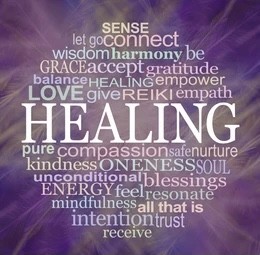It’s estimated that the US spends a staggering $30 billion per year on substance abuse treatment problems. Traditional addiction recovery programs typically consist of 12-step programs that were initially conceived by Alcoholics Anonymous. However, this does not work for everyone. Presented by EricsHouse, here are five alternative methods to addiction recovery and when you should utilize them.
Exercise and diet
VeryWell Mind explains that exercise can not only help with feelings of withdrawal, but it can improve adverse cognitive consequences of addiction such as problems with sleep or mood swings. Adding exercise to your day can offer an array of physical and mental health benefits for those in recovery, but it can be difficult to motivate yourself to get started. One good tactic is treating yourself to some new workout gear, equipment or even a fitness tracker.
Your diet also can make a difference. When you’re eating healthier foods, your body functions better and feels better. Eating unhealthy foods can lead to a pattern of indulgence and will ultimately make you emotionally unstable and likely to relapse. Don’t feel like you have to completely deprive yourself, but start incorporating more healthy foods into your diet.
Psychodynamic psychotherapy
Psychodynamic therapy is a specific kind of in-depth psychology. Essentially, it looks at why you are the way you are and seeks to get to the core of your struggles. The central purpose is to understand how specific behaviors or motivations are associated with your addiction. The power of this is that it allows a highly individualized approach that seeks to address addiction at its very core, which is different from many other addiction treatment regimens.
Art therapy
There are a variety of reasons that art therapy works for people, but Art Therapy Blog notes that possible reasons include the opportunity for art or music therapy to act as a means of communication, a motivation tool, and a means by which recovering addicts are able to move from a reflective state to one of action.
A change of scenery
Extricating yourself from your house and neighborhood, even for a short period of time, can be highly beneficial when fighting substance abuse disorder. And you don’t have to go far. This can be far on the other side of town or even in the next city over. For example, a getaway to Scottsdale allows you to stay close to home while enjoying the creature comforts of a cozy house. Look for something off the beaten path that has some desirable amenities like a pool or that’s pet-friendly. Being out of your normal habitrail can make it easier to change your perspective, which is crucial right now.
Gardening and the outdoors
The benefits of gardening are extensive. Research has shown that gardening can be used to reduce symptoms of anxiety and depression, increase feelings of community, and prompt introspection by providing experiences with nature.
“Green exercise,” as it is sometimes called, can be utilized no matter where you live. If you live in an urban environment, get a few plants for your little space and take care of them. If you don’t have a garden, see if there are community gardens you can volunteer. There is something so satisfying about seeing the effects of what you’ve done and owning that effort.
Support groups
Often, it helps tremendously to connect with others who are going through something similar. This can be especially helpful if you’ve lost friends to substance abuse, which often propels someone with a substance abuse disorder to seek help. Through a group setting via EricsHouse, you can connect with individuals who are also looking to heal. Here, group leaders provide a safe, supportive space where you can open up without the fear of judgment.
A job and supportive friends
According to Psychology Today, an overall healthy environment—a job, healthy social network, etc.—will aid in addiction recovery. Often, addicts will relapse after coming out of rehab due to an unhealthy environment. It’s easier to go back to old habits when you’re surrounded by the same triggers that influenced you before.
Make sure you are employed. If necessary, look into community colleges or trade schools that will help your chances of getting a steady source of income. If there are bad influences in your life, you might have to decrease the time you spend with them or cut them out of your life. Reach out to people who love you and will hold you accountable. It may be difficult, but they will make a difference.
According to the Atlantic, many current studies on addiction show that choice does exist and that the ball is in the addict’s court to change. Treating addiction as something that you aren’t a slave to offers the best chance to beat it. Thinking that you are irreparably broken makes it more likely you will fail.
Only utilize alternative recovery programs if you’ve given other traditional recovery programs your best shot. If you work better through these alternative methods, continue to do so. If you find that a combination of these methods plus a traditional rehabilitation program works for you, then continue with it. Your recovery is worth it.



